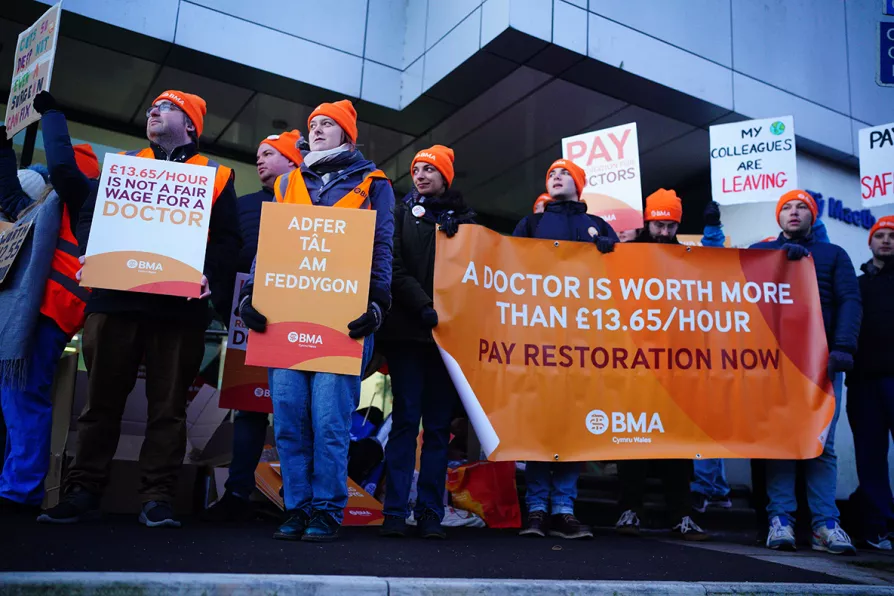GP strikes could be on the cards after doctors oppose government contract

 Junior doctors on the picket line at Cardiff's University Hospital, January 15, 2024
Junior doctors on the picket line at Cardiff's University Hospital, January 15, 2024
GPs may be forced to go on strike, a leading medic said today after family doctors overwhelmingly opposed a new government contract that threatens to bankrupt practices.
According to the British Medical Association, almost two in three practices report concerns over short and long-term financial viability, while more than half have experienced cashflow issues in the last year.
The new contract offers practices a 1.9 per cent increase in funding, but the BMA says it's not enough to stop them from cutting services or shutting down.
Similar stories














